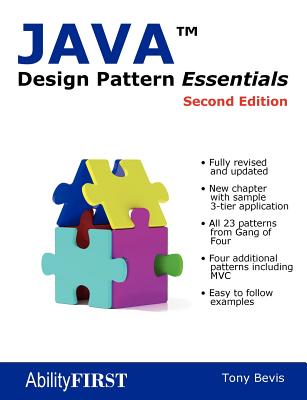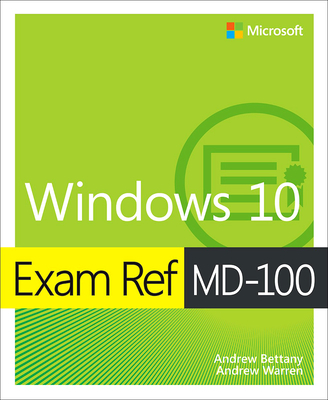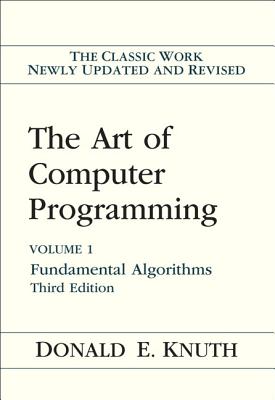Kubernetes for App Developers (LFD459) Training in Lakewood
Enroll in or hire us to teach our Kubernetes for App Developers (LFD459) class in Lakewood, Colorado by calling us @303.377.6176. Like all HSG
classes, Kubernetes for App Developers (LFD459) may be offered either onsite or via instructor led virtual training. Consider looking at our public training schedule to see if it
is scheduled: Public Training Classes
Provided there are enough attendees, Kubernetes for App Developers (LFD459) may be taught at one of our local training facilities.
|
We offer private customized training for groups of 3 or more attendees.
|
||
Course Description |
||
|
This course will teach you how to containerize, host, deploy, and configure an application in a multi-node cluster. It also serves as preparation for the Certified Kubernetes Application Developer (CKAD) exam.
Starting with a simple Python script, this course will show you how to define application resources and use core primitives to build, monitor and troubleshoot scalable applications in Kubernetes. Working with network plugins, security and cloud storage, you will be exposed to many of the features needed to deploy an application in a production environment.
read more
What It Prepares You For
The topics covered are directly aligned with the knowledge domains tested by the CKAD program, and will substantially increase students’ ability to become certified.
Course Length: 4 Days
Course Tuition: $2800 (US) |
||
Prerequisites |
|
| This course is for experienced application developers who need to containerize, host, deploy, and configure an application in a multi-node cluster. | |
Course Outline |
|
Introduction
Objectives
Who You Are
The Linux Foundation
Linux Foundation Training
Certification Programs and Digital Badging
Preparing Your System
Course Registration
Labs
Kubernetes Architecture
What Is Kubernetes?
Components of Kubernetes
Challenges
The Borg Heritage
Kubernetes Architecture
Terminology
Master Node
Minion (Worker) Nodes
Pods
Services
Controllers / Operators
Single IP per Pod
Networking Setup
CNI Network Configuration File
Pod-to-Pod Communication
Cloud Native Computing Foundation
Resource Recommendations
Labs
Build
Container Options
Containerizing an Application
Creating the Dockerfile
Hosting a Local Repository
Creating a Deployment
Running Commands in a Container
Multi-Container Pod
readinessProbe
livenessProbe
Testing
Labs
Design
Traditional Applications: Considerations
Decoupled Resources
Transience
Flexible Framework
Managing Resource Usage
Using Label Selectors
Multi-Container Pods
Sidecar Container
Adapter Container
Ambassador
Points to Ponder
Jobs
Labs
Deployment Configuration
Volumes Overview
Introducing Volumes
Volume Spec
Volume Types
Shared Volume Example
Persistent Volumes and Claims
Persistent Volume
Persistent Volume Claim
Dynamic Provisioning
Secrets
Using Secrets via Environment Variables
Mounting Secrets as Volumes
Portable Data with ConfigMaps
Using ConfigMaps
Deployment Configuration Status
Scaling and Rolling Updates
Deployment Rollbacks
Labs
Security
Security Overview
Accessing the API
Authentication
Authorization
ABAC
RBAC
RBAC Process Overview
Admission Controller
Security Contexts
Pod Security Policies
Network Security Policies
Network Security Policy Example
Default Policy Example
Labs
Exposing Applications
Service Types
Services Diagram
Service Update Pattern
Accessing an Application with a Service
Service without a Selector
ClusterIP
NodePort
LoadBalancer
ExternalName
Ingress Resource
Ingress Controller
Service Mesh
Labs
Troubleshooting
Troubleshooting Overview
Basic Troubleshooting Steps
Ongoing (Constant) Change
Basic Troubleshooting Flow: Pods
Basic Troubleshooting Flow: Node and Security
Basic Troubleshooting Flow: Agents
Monitoring
Logging Tools
Monitoring Applications
System and Agent Logs
Conformance Testing
More Resource
Labs
Closing and Evaluation Survey
Evaluation Survey
|
Course Directory [training on all levels]
Technical Training Courses
Software engineer/architect, System Admin ... Welcome!
- .NET Classes
- Agile/Scrum Classes
- Ajax Classes
- Android and iPhone Programming Classes
- Blaze Advisor Classes
- C Programming Classes
- C# Programming Classes
- C++ Programming Classes
- Cisco Classes
- Cloud Classes
- CompTIA Classes
- Crystal Reports Classes
- Design Patterns Classes
- DevOps Classes
- Foundations of Web Design & Web Authoring Classes
- Git, Jira, Wicket, Gradle, Tableau Classes
- IBM Classes
- Java Programming Classes
- JBoss Administration Classes
- JUnit, TDD, CPTC, Web Penetration Classes
- Linux Unix Classes
- Machine Learning Classes
- Microsoft Classes
- Microsoft Development Classes
- Microsoft SQL Server Classes
- Microsoft Team Foundation Server Classes
- Microsoft Windows Server Classes
- Oracle, MySQL, Cassandra, Hadoop Database Classes
- Perl Programming Classes
- Python Programming Classes
- Ruby Programming Classes
- Security Classes
- SharePoint Classes
- SOA Classes
- Tcl, Awk, Bash, Shell Classes
- UML Classes
- VMWare Classes
- Web Development Classes
- Web Services Classes
- Weblogic Administration Classes
- XML Classes
Business Training Courses
Project Managers, Business Analysts, Paralegals ... Welcome!
Upcoming Classes
Gain insight and ideas from students with different perspectives and experiences.
- Introduction to C++ for Absolute Beginners
16 December, 2024 - 17 December, 2024 - Linux Fundaments GL120
9 December, 2024 - 13 December, 2024 - VMware vSphere 8.0 with ESXi and vCenter
9 December, 2024 - 13 December, 2024 - RED HAT ENTERPRISE LINUX AUTOMATION WITH ANSIBLE
2 December, 2024 - 5 December, 2024 - Introduction to Spring 5 (2022)
16 December, 2024 - 18 December, 2024 - See our complete public course listing
Linux Unix Uses & Stats
Linux Unix is Used For:
Desktop
Mainframe Computers
Mobile Devices
Embedded Devices
|
Difficulty
|
Popularity
|
Year Created 1991/1971 |
|
Pros
Performance:
Linux supports many efficient tools and operates them seamlessly. Because it's architecture is lightweight it runs faster than both Windows 8.1 and 10.
Security:
Because Linux is an open-source software, anyone can contribute code to help enhance the users’ experience i.e., adding features, fixing bugs, reducing security risks, and more.
Software Development:
The terminal in Linux is a *wild card*. You can do almost anything with it. This includes software installation, application and server configurations, file system management, and etc.
Large-scale:
Open-source projects benefit from having an attentive community. As a result, Linux is more secure than Windows. Instead of installing anti viruses to clean malware, you just have to stick to the recommended repositories.
Efficient:
Developers have the convenience of running servers, training machine learning models, accessing remote machines, and compiling and running scripts from the same terminal window.
Free:
Linux is free (you can put it on as many systems as you like) and you can change it to suit your needs.
|
Cons
Learning Curve:
Linux is not for everyone, there is a learning curve in switching to Ubuntu. To actually learn Linux efficiently would take a user one to several years.
No Tech Support:
Unlike Windows, there isn’t a dedicated tech support, so getting help for things is up to you.
Designer Compatabilty:
Linux is not as user friendly as Windows or as ‘straight out of the box design’ As an example for design choices, Adobe hasn’t released any of its products to Linux users. So it’s impossible to run them directly. The Ubuntu alternative is a free software called GIMP.
Gaming Capabilities:
Most games aren’t available in Linux. But that’s not to say you can’t make it happen, it's just not as easy.
|
| Linux Unix Job Market |

Average Salary
|

Job Count
|

Top Job Locations
New York City |
|
Complimentary Skills to have along with Linux Unix
The following are types of jobs that may require Linux skills. The top 15 job titles on Dice.com that mention Linux in their postings are:
- DevOps Engineer
- Software Engineer - Java Developer - Systems Engineer - Systems Administrator - Senior Software Engineer - Network Engineer - Python Developer - Linux Systems Administrator - Software Developer - System Administrator - Linux Administrator - Linux Engineer - Senior Java Developer - C++ Developer |






